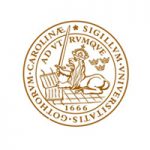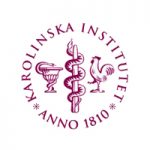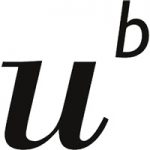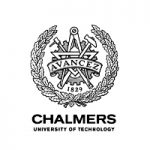项目介绍
Lund University was founded in 1666 and is repeatedly ranked among the world’s top universities. The University has around 47 000 students and more than 8 800 staff based in Lund, Helsingborg and Malmö. We are united in our efforts to understand, explain and improve our world and the human condition.
Lund University welcomes applicants with diverse backgrounds and experiences. We regard gender equality and diversity as a strength and an asset.
Subject description
T-cells are a crucial component of the immune system and play a vital role in immunotherapy for cancer treatment. There is currently an incomplete molecular understanding of T-cell activation, although several receptors on the cell surface have been identified as being involved in this process. This project aims to investigate two significant receptors on T cells, CD4 and SLAMF6, to understand the mechanisms behind their influence on T-cell activation. This research is relevant to optimizing the utilization of these receptors in cancer therapy. The project is highly interdisciplinary, combining advanced imaging techniques, biophysics and cell biology. It involves experimental lab work, the creation of model cell surfaces, and studies using super-resolution fluorescence microscopy to analyze receptor interactions at the single-molecule level.
This project is ideal for students with a background in biophysics, physical chemistry or related fields who are interested in applying advanced experimental techniques to study and solve fundamental immunological questions.
The main supervisor for the project is Associate Professor Peter Jönsson at the Division of Physical Chemistry, Lund University, with a research focus on biomolecular interactions at interfaces https://www.physchem.lu.se/people/seniors/joensson/. The doctoral student will be stationed at the Division of Physical Chemistry, Lund University, but will also collaborate with Prof. Fredrik Höök’s group at Chalmers, Sweden https://www.chalmers.se/en/persons/fredrikh/.
Work duties
This work involves a combination of experimental work, advanced fluorescence microscopy and quantitative data analysis. You will build a model cell surface that binds to receptors on T cells, such as CD4 and SLAMF6. Super-resolution fluorescence microscopy will be used to study the receptor interactions at the single-molecule level. Advanced data analysis will be performed to uncover fundamental mechanisms of T-cell activation. This research aims to enhance the understanding of T-cell activation and thereby develop more effective drugs against cancer.
The main duties of doctoral students are to devote themselves to their research studies which includes participating in research projects and third cycle courses. The work duties will also include teaching and other departmental duties (no more than 20%).
Admission requirements
A person meets the general admission requirements for third-cycle courses and study programmes if the applicant:
- has been awarded a second-cycle qualification, or
- has satisfied the requirements for courses comprising at least 240 credits of which at least 60 credits were awarded in the second cycle, or
- has acquired substantially equivalent knowledge in some other way in Sweden or abroad.
The requirements for specific entry requirements in physical chemistry are met by those who have at least 120 credits of chemistry courses, of which at least 30 credits must be second-cycle thesis courses in the chosen specialisation or closely related specialisations. The special qualification may also have been obtained through other equivalent education (e.g. courses in physics, biology, immunology, biotechnology etc., relevant to the advertised position), which is assessed in each individual case.
Additional requirements:
- Very good oral and written proficiency in English.
Assessment criteria
Selection for third-cycle studies is based on the student’s potential to profit from such studies. The assessment of potential is made primarily on the basis of academic results from the first and second cycle. Special attention is paid to the following:
- Knowledge and skills relevant to the thesis project and the subject of study.
- An assessment of ability to work independently and to formulate and tackle research problems.
- Written and oral communication skills.
- Other experience relevant to the third-cycle studies, e.g. professional experience.
Other assessment criteria:
- Experience of advanced fluorescence microscopy is a merit.
- Experience of surface modifations is a merit.
- Experience of cell culture is a merit.
- Experience of image analysis is a merit.
Consideration will also be given to good collaborative skills, drive and independence, and how the applicant, through his or her experience and skills, is deemed to have the abilities necessary for successfully completing the third cycle programme.
Terms of employment
Only those admitted to third cycle studies may be employed as doctoral students. The duration of the doctoral studies is four years for full-time studies. In the case of teaching and other departmental work, the employment is extended correspondingly, but for a maximum of 5 years (i.e. a maximum of 20%). Doctoral studentships are regulated in the Higher Education Ordinance (1993:100), chapter 5, 1-7 §§.
Instructions on how to apply
Applications shall be written in English and include a cover letter stating the reasons why you are interested in the position and in what way the research project corresponds to your interests and educational background. The application must also contain a CV, degree certificate or equivalent, and other documents you wish to be considered (grade transcripts, contact information for your references, letters of recommendation, etc.).
Within the Faculty of Science research and education is conducted within Biology, Astronomy, Physics, Geosciences, Chemistry, Mathematics and Environmental Sciences. The Faculty of Science is organized into eight departments, gathered in the northern campus area in Lund. The Faculty of Science has approximately 1500 students, 330 PhD students and 700 employees.
联系方式
电话: +46 (0)46 222 0000相关项目推荐
KD博士实时收录全球顶尖院校的博士项目,总有一个项目等着你!






